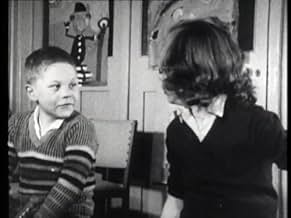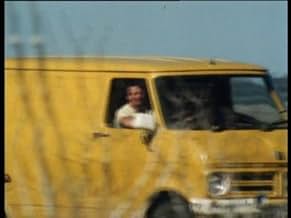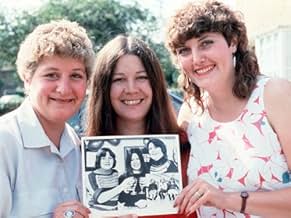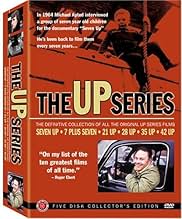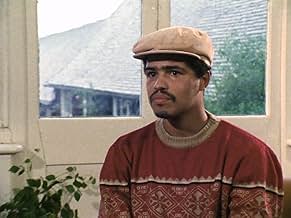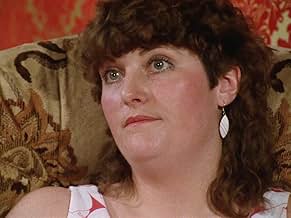28 Up
- टीवी फ़िल्म
- 1984
- 2 घं 16 मि
IMDb रेटिंग
8.1/10
3.2 हज़ार
आपकी रेटिंग
अपनी भाषा में प्लॉट जोड़ेंThis eye-opening episode uncovers human nature and the desire to survive and succeed in all its heart-breaking glory.This eye-opening episode uncovers human nature and the desire to survive and succeed in all its heart-breaking glory.This eye-opening episode uncovers human nature and the desire to survive and succeed in all its heart-breaking glory.
- 1 BAFTA अवार्ड जीते गए
- 3 जीत और कुल 3 नामांकन
Bruce Balden
- Self
- (as Bruce)
Jacqueline Bassett
- Self
- (as Jackie)
Symon Basterfield
- Self
- (as Simon)
Andrew Brackfield
- Self
- (as Andrew)
John Brisby
- Self
- (आर्काइव फ़ूटेज)
- (as John)
Peter Davies
- Self
- (as Peter)
Suzanne Dewey
- Self
- (as Suzi)
Charles Furneaux
- Self
- (आर्काइव फ़ूटेज)
- (as Charles)
Nicholas Hitchon
- Self
- (as Nick)
Neil Hughes
- Self
- (as Neil)
Lynn Johnson
- Self
- (as Lynn)
Paul Kligerman
- Self
- (as Paul)
Susan Sullivan
- Self
- (as Sue)
Tony Walker
- Self
- (as Tony)
Michael Apted
- Interviewer
- (वॉइस)
- (बिना क्रेडिट के)
Michelle Murphy
- Self (age 7, with Tony)
- (आर्काइव फ़ूटेज)
- (बिना क्रेडिट के)
फ़ीचर्ड समीक्षाएं
In 28 Up, it seems like the 'the Man' part of the 'Give me a Child' bit that is quoted in every Up movie is starting to take shape, for the men and women. Or, at least, most of them. We see the gradual progression of life start to take shape: careers, over the course of the people's 20's, have been sought out, and they've gotten married and/or had children. Some, in fact, who weren't married before have been changed for the better it would seem by being married (i.e. Jackie), and some aren't living in Britain anymore (one is a physicist living in America with his wife, another has lived in Australia for quite a long time).
The series in this 'episode' film centers around the real progress into adulthood, and how the interviewees now feel about how their lives, loves, careers have progressed. A given topic that comes up is how they think they've changed since being in the first film at seven, and the consensus, a strong one presented, is that a person is at least, potentially, there at the age, but needs to grow (like a seed). It's fascinating too to see how the children in groups have progressed about as expected, or with some relativity. For example the three boys, now adults, sitting in the same line (albeit one of them declined to be interviewed, ironic since he works for the BBC in 1985), one of whom a prissy, upper class citizen, and another not so much, based on hair-length perhaps.
In general 28 Up seems to view the subjects as they would be naturally by this point as adults, and some, like the bricklayer, revealed how they might turn out when let loose in the 'playground' at age seven, some building a house and some, well, not (another fascinating subject like this is the former jockey turned cab driver). And yet a good deal of these subjects, at least for the moment of 28, look set for their life, either with a current wife or kids or a steady income at something they've worked for... which brings us to Neil. He's the one who, at 28, has no current prospects, who was happy as a child but now is disillusioned to the fact that he doesn't have a career or much of a life, but in a way is fine with that (he applied to Oxford, but didn't get in). He's the stark, fascinating contrast that gives 28 Up a great sense of depth. The class system in Britain, or just in how it sets up these kids, is revealed in the highs, mediums and lows of living, and Neil is certainly a low, but not feeling bad about it (at the least, he says, he can eat now, unlike some years before).
The series in this 'episode' film centers around the real progress into adulthood, and how the interviewees now feel about how their lives, loves, careers have progressed. A given topic that comes up is how they think they've changed since being in the first film at seven, and the consensus, a strong one presented, is that a person is at least, potentially, there at the age, but needs to grow (like a seed). It's fascinating too to see how the children in groups have progressed about as expected, or with some relativity. For example the three boys, now adults, sitting in the same line (albeit one of them declined to be interviewed, ironic since he works for the BBC in 1985), one of whom a prissy, upper class citizen, and another not so much, based on hair-length perhaps.
In general 28 Up seems to view the subjects as they would be naturally by this point as adults, and some, like the bricklayer, revealed how they might turn out when let loose in the 'playground' at age seven, some building a house and some, well, not (another fascinating subject like this is the former jockey turned cab driver). And yet a good deal of these subjects, at least for the moment of 28, look set for their life, either with a current wife or kids or a steady income at something they've worked for... which brings us to Neil. He's the one who, at 28, has no current prospects, who was happy as a child but now is disillusioned to the fact that he doesn't have a career or much of a life, but in a way is fine with that (he applied to Oxford, but didn't get in). He's the stark, fascinating contrast that gives 28 Up a great sense of depth. The class system in Britain, or just in how it sets up these kids, is revealed in the highs, mediums and lows of living, and Neil is certainly a low, but not feeling bad about it (at the least, he says, he can eat now, unlike some years before).
Director Michael Apted returns to interview this group of people 7 years later. They are 28 now, and things keep changing. We are now further and further away from the social studies aspects of the original idea. These are great stories about real people. The phrase that you can't make this up is really coming true here. There are still questions about school, about money, about class system, but they are almost distractions now. These people are not just about the stereotypes although some do try very hard.
Neil is now fully gone into the wilds and alone. Suzy has finally found happiness and it's obvious now how miserable she was in the first 3 films. Everybody else is changing in their lives in different ways. Charles has dropped out of the series all together. The series is getting more and more fascinating.
Neil is now fully gone into the wilds and alone. Suzy has finally found happiness and it's obvious now how miserable she was in the first 3 films. Everybody else is changing in their lives in different ways. Charles has dropped out of the series all together. The series is getting more and more fascinating.
The 'Up Series' represents one of the most fascinating and unusual uses of film in cinema history - a documentary life-long chronicle of the lives of 14 people starting at 7 years old, revisiting them every seven years through age 49 (so far).
While I could quibble, wishing for a bit more depth here and there (especially with the women, where there's a bit too much emphasis on love and marriage at the expense of all else), it's really an astounding, moving, frightening and uplifting document. There's no way to watch this remarkable series of films without reflecting deeply on one's own life, and how you have changed (and stayed the same) over your own lifetime.
While Michael Aped deserves every bit of credit he's received for this amazing piece of cultural anthropology, it's important to note this first film, 7 Up,was actually directed by Paul Almond, and Apted was a that point a researcher for the project.
While I could quibble, wishing for a bit more depth here and there (especially with the women, where there's a bit too much emphasis on love and marriage at the expense of all else), it's really an astounding, moving, frightening and uplifting document. There's no way to watch this remarkable series of films without reflecting deeply on one's own life, and how you have changed (and stayed the same) over your own lifetime.
While Michael Aped deserves every bit of credit he's received for this amazing piece of cultural anthropology, it's important to note this first film, 7 Up,was actually directed by Paul Almond, and Apted was a that point a researcher for the project.
Filmmaker Michael Apted's pet project for British television (released theatrically in several countries) is an occasionally fascinating, sometimes boring documentary which spans many years as Apted interviews a handful of British schoolchildren in the 1950s, catching up with them seven years later and so on until the kids have reached the age of 25. For the sake of cinema, it is a shame that the subjects whom Apted initially chose for his portrait turned out to be such colorless personalities. There are a few tragedies which unfold with the heartrending beauty of fictional melodrama, yet this installment runs out of intriguing moments long before it is over. Apted is to be commended, nevertheless, for a brilliant cinematic idea. Followed in due time by "35 Up", "42 Up", "49 Up". **1/2 from ****
Michael Apted must be congratulated for having (or perhaps stumbling upon) the vision for this study. Begin with 14 seven year olds in England, film them in a few interesting situations, and follow those same kids as they grow up. Every seven years. Because all of our lives transpire at roughly the same rates, we cannot actually observe children growing up. But this filmed approach is the next best thing.
In this film we get to see (most of) the same children at 7, 14, 21 and 28. Just as we saw a great difference from 14 to 21, again we see a great difference from 21 to 28. Having been in the working world for 5 or 6 years, most married and raising families, they no longer look and act like the searchers we saw in earlier films. Except for Neil, who at 7 seemed to be the brightest and most expressive, to a 28-year-old that never knows if he will be homeless the next month. As dramatic, in the opposite direction, was Suzy who went from a disenchanted dropout to a happy wife and mother. Still, in each subject we can identify characteristics that have stayed with them as they grew up.
We still see how the "process" has influenced the "product." To a good degree, who they are at 28 is a product of having been in the "UP" series every 7 years, and the internal pressure to be worthy for the world to see them.
This and all the others through '42-UP' in 1998 are on the 5-disk DVD set just out. ("49 UP" has been made but is not yet available on DVD.) However, simply seeing the most recent film (42-UP or 49-UP) is pretty good, because each film contains snippets of each of the former ones, allowing us to see how each child developed in 7-year increments.
Just a marvelous study of growing up.
In this film we get to see (most of) the same children at 7, 14, 21 and 28. Just as we saw a great difference from 14 to 21, again we see a great difference from 21 to 28. Having been in the working world for 5 or 6 years, most married and raising families, they no longer look and act like the searchers we saw in earlier films. Except for Neil, who at 7 seemed to be the brightest and most expressive, to a 28-year-old that never knows if he will be homeless the next month. As dramatic, in the opposite direction, was Suzy who went from a disenchanted dropout to a happy wife and mother. Still, in each subject we can identify characteristics that have stayed with them as they grew up.
We still see how the "process" has influenced the "product." To a good degree, who they are at 28 is a product of having been in the "UP" series every 7 years, and the internal pressure to be worthy for the world to see them.
This and all the others through '42-UP' in 1998 are on the 5-disk DVD set just out. ("49 UP" has been made but is not yet available on DVD.) However, simply seeing the most recent film (42-UP or 49-UP) is pretty good, because each film contains snippets of each of the former ones, allowing us to see how each child developed in 7-year increments.
Just a marvelous study of growing up.
क्या आपको पता है
- ट्रिवियाPeter Davies lost his job as a teacher because of the anti-Thatcher comments he made in this film.
- भाव
Neil Hughes: If the state didn't give us any money, it would probably just mean crime and I'm glad I don't have to steal to keep myself alive. If the money runs out then for a few days there's nowhere to go and that's all you can do, I simply have to find the warmest shed I can find.
टॉप पसंद
रेटिंग देने के लिए साइन-इन करें और वैयक्तिकृत सुझावों के लिए वॉचलिस्ट करें
विवरण
- चलने की अवधि2 घंटे 16 मिनट
- रंग
- ध्वनि मिश्रण
- पक्ष अनुपात
- 1.33 : 1
इस पेज में योगदान दें
किसी बदलाव का सुझाव दें या अनुपलब्ध कॉन्टेंट जोड़ें


